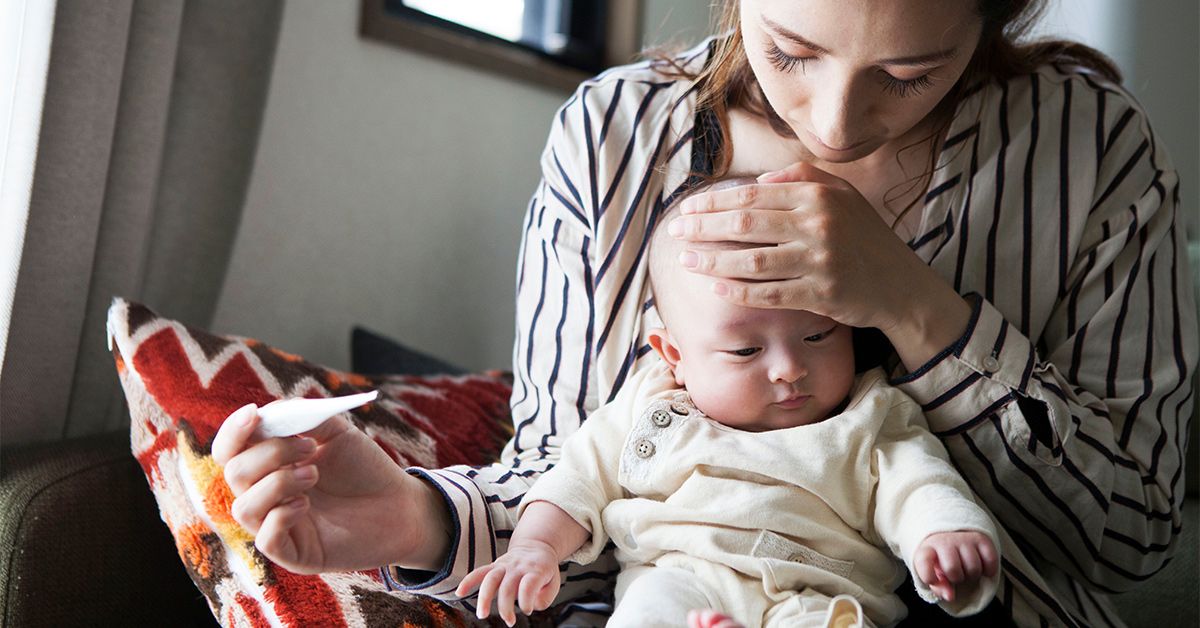
When babies catch a cold or flu, it can be distressing not only for them but also for their parents or caregivers. Selecting the right medicine to ease a baby’s symptoms is a critical decision since babies’ bodies react differently to medications than those of older children and adults. Knowing what’s safe, what to avoid, and how to administer medications properly is essential for ensuring the health and comfort of a baby during cold and flu season.
In this article, we’ll break down everything parents and caregivers need to know about choosing cold and flu medicines for babies, including important safety guidelines, types of medications available, and some natural alternatives that might be worth considering.
1. Understanding Cold and Flu in Babies
Babies are especially vulnerable to colds and flu because their immune systems are still developing. The common cold is caused by various viruses, most frequently rhinoviruses, while the flu is caused by influenza viruses. Both illnesses typically affect the respiratory system and share common symptoms, such as a runny or stuffy nose, cough, fever, and sometimes sore throat.
However, it’s essential to distinguish between a common cold and the flu in babies, as the flu can lead to more severe complications. Generally, the flu comes with more intense symptoms like a higher fever, chills, and body aches, while a cold tends to be milder.
2. Consulting a Paediatrician: The First Step
Before giving any medication to a baby, consult a paediatrician. Babies’ bodies handle medications differently from older children and adults, so never assume an over-the-counter (OTC) cold medicine safe for an adult is also safe for an infant. For infants under three months old, even minor symptoms should be assessed by a healthcare professional, as young babies are particularly susceptible to complications.
In cases where symptoms seem severe—such as a high fever, difficulty breathing, or signs of dehydration—immediate medical intervention is essential.
3. Understanding the Labels and Ingredients
Reading medication labels carefully is critical. Cold and flu medications typically include ingredients that target specific symptoms, such as nasal decongestants, antihistamines, cough suppressants, and fever reducers. Here’s a brief look at common ingredients and whether they are appropriate for babies:
- Acetaminophen: Commonly used for fever reduction, acetaminophen (also known as paracetamol) is safe for infants if used in the correct dosage. However, the correct dosage is based on the baby’s weight, so always follow paediatrician guidance or instructions on the label.
- Ibuprofen: Suitable only for babies over six months old, ibuprofen can reduce fever and relieve pain. Like acetaminophen, it should only be used in the recommended dose and not combined with other fever reducers.
- Cough Suppressants and Decongestants: These ingredients are generally not safe for infants under two years old. Ingredients like dextromethorphan and pseudoephedrine can cause side effects and may not relieve symptoms effectively in babies. Avoid any cough and cold medications with these ingredients for infants unless directed by a healthcare provider.
- Antihistamines: Antihistamines are typically used for allergies rather than colds. However, they are sometimes included in cold medications to relieve a runny nose or sneezing. These are generally unsuitable for infants and can cause drowsiness or other side effects.
4. Avoiding Over-the-Counter Cough and Cold Medicines for Babies
The American Academy of Pediatrics (AAP) advises against giving over-the-counter (OTC) cough and cold medications to children under four years old due to potential health risks. Many OTC cough and cold medicines contain ingredients that can cause severe side effects, including rapid heart rate, convulsions, and excessive drowsiness.
Instead of OTC cold medicine, it’s often better to focus on comfort and supportive care at home.
5. Safe Medication Options for Babies
For babies experiencing discomfort due to cold and flu symptoms, here are some safe options:
- Saline Drops and Nasal Aspirators: Saline drops can help loosen nasal mucus, making it easier to remove with a nasal aspirator. This is particularly helpful for babies who cannot blow their noses and may struggle to breathe when congested.
- Acetaminophen and Ibuprofen (for Babies Over Six Months): These medications can safely reduce fever and ease discomfort if administered according to the paediatrician’s dosage instructions.
- Steam Therapy: A humidifier in the baby’s room or sitting in a steamy bathroom can relieve congestion. Moist air can soothe irritated nasal passages and help make breathing easier.
6. When to Use Fever Reducers
Fever is the body’s natural response to infection, and in some cases, letting a mild fever run its course can be beneficial. However, for babies, especially infants under three months old, a fever can be more serious. Fever reducers such as acetaminophen (and ibuprofen for babies over six months) should only be used when necessary and in consultation with a paediatrician.
For babies three months and older with mild fevers and no other symptoms, it might not be necessary to treat a fever immediately. However, if a fever is causing discomfort or reaching 100.4°F (38°C) or higher in babies under three months, consult a healthcare provider right away.
7. Natural Remedies and Supportive Care
Alongside safe medications, natural remedies and supportive care can play a significant role in helping a baby recover comfortably from a cold or flu. Here are some suggestions:
- Hydration: Ensuring the baby stays well-hydrated is crucial. For babies under six months, continue breastfeeding or formula-feeding as usual. For babies over six months, small sips of water may also be beneficial. Dehydration is a risk with fever and should be monitored carefully.
- Warm Baths: A warm bath can help lower body temperature slightly and provide some comfort. For fevers, avoid using cold water as it can cause shivering and raise body temperature further.
- Elevating the Head: Elevating the baby’s head slightly while they sleep (using a rolled towel under the mattress) may help reduce congestion. Be sure to do this safely, as babies should always sleep on a flat, firm surface.
8. Preventing Cold and Flu in Babies
While treating symptoms is essential, prevention is even better. Since infants are particularly vulnerable, taking proactive measures can reduce their risk of catching a cold or flu:
- Hand Hygiene: Regularly wash your hands and ask others to do the same before handling the baby.
- Limit Exposure: Avoid crowded places and keep the baby away from individuals who may be sick, especially during flu season.
- Vaccination for Caregivers: Ensure that caregivers receive the flu vaccine to reduce the risk of transmission to the baby, especially for infants under six months who cannot be vaccinated.
9. When to Seek Immediate Medical Attention
Certain symptoms indicate the need for urgent medical attention in babies with cold or flu symptoms:
- High fever (especially in babies under three months old)
- Difficulty breathing or wheezing
- Refusal to feed or signs of dehydration
- Persistent cough or unusual irritability
- Bluish lips or face
If any of these symptoms occur, contact a healthcare provider or go to the nearest emergency room.
10. Final Thoughts on Cold and Flu Medicine for Babies
Selecting the right approach for treating cold and flu vaccination in Australia symptoms in babies involves a combination of safe medications, natural remedies, and preventive care. Parents and caregivers should avoid OTC cold medications for young babies and focus on supportive measures like saline drops, hydration, and appropriate fever management under a paediatrician’s guidance.
Understanding what’s safe, using gentle methods to relieve symptoms, and consulting with healthcare professionals as needed are the best ways to help a baby recover quickly and comfortably from cold and flu.







